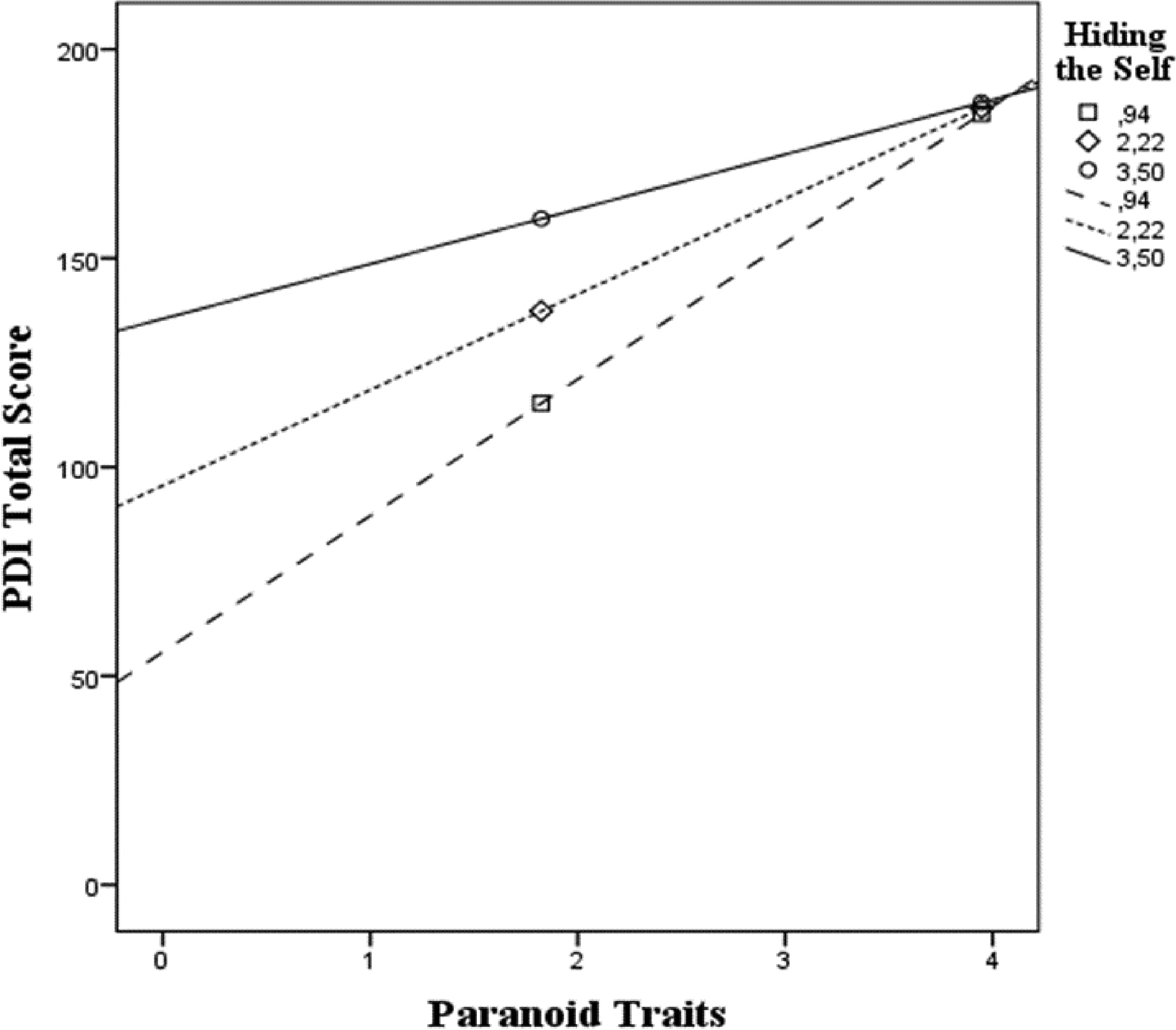No CrossRef data available.
Article contents
The role of personality and trait affectivity on delusional ideation
Published online by Cambridge University Press: 23 March 2020
Abstract
The relationship between personality and delusional ideation in still debated. The present study was aimed to evaluate the role of personality features and trait affectivity on the severity of delusional beliefs, through the lens of a dimensional approach. In fact, robust evidence suggests that delusional experience presents a dimensional structure rather than an all-or-nothing fashion with a severity gradient of delusional beliefs from general population to full-blown delusional disorder (DD).
Forty-nine inpatients affected by DD and 42 non-delusional outpatients were administered the structured interview for DSM-IV Personality Disorders, the Pathological Narcissism Inventory–Italian Version, the Positive and Negative Affect Schedule and the Peters et al. 33–Italian version.
Severity of delusional ideation was positively related to “hiding the self” (HS) domain of narcissistic vulnerability and to paranoid traits and negatively related to “positive affect” (PA). Paranoid traits and HS significantly interacted in influencing delusional dimension severity (Fig. 1). Low PA represents a trait affectivity of sadness and lethargy whereas HS is closely related to the experience of shame. We speculate that lower levels of PA and higher levels of HS may grasp the “asthenic” pole of Kretschmer's “sensitive character”.
The study findings suggest that the severity of delusional ideation depends, at least in part, on a complex interplay between specific affective and paranoid dispositions within personality. Delusion may constitute the superficial shell, which develops from and cover inner affective vulnerabilities of personality.
Fig. 1
The authors have not supplied their declaration of competing interest.
- Type
- e-Poster Viewing: Psychopathology
- Information
- European Psychiatry , Volume 41 , Issue S1: Abstract of the 25th European Congress of Psychiatry , April 2017 , pp. S747 - S748
- Copyright
- Copyright © European Psychiatric Association 2017





Comments
No Comments have been published for this article.